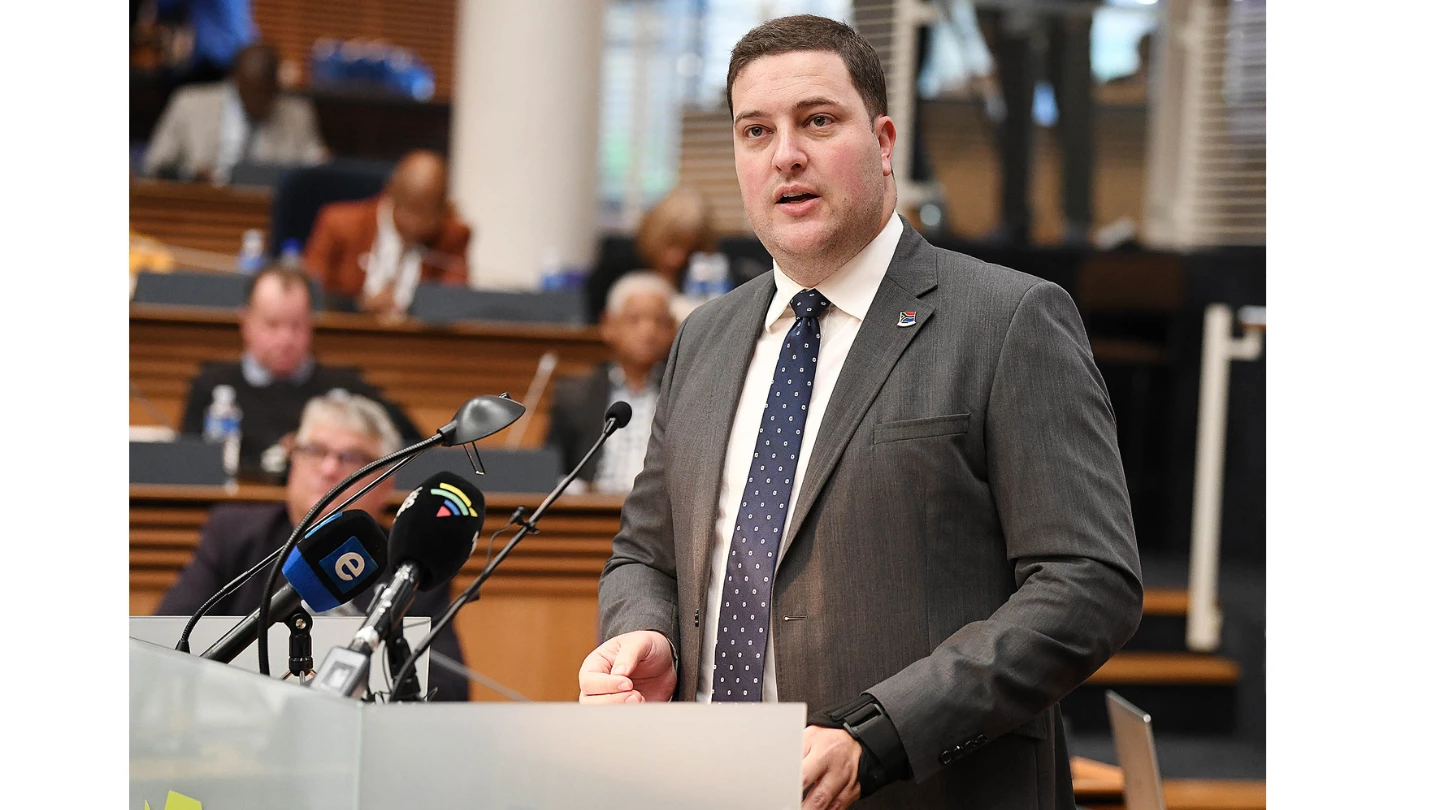Vision for a healthy future
An interview with Cape Town Mayor Geordin Hill-Lewis ahead of the 2024 Partnership for Healthy Cities Summit.

For Cape Town's mayor, health is an equity issue
Cape Town Mayor Geordin Hill-Lewis came into office in the middle of the COVID-19 pandemic and, like many other urban leaders around the world, immediately made public health a top priority. In Mayor Hill-Lewis’ case, this commitment has remained: The word “healthy” is now part of the city’s official vision statement and has been added to the agendas of multiple city agencies.
A more holistic approach to Cape Town’s health challenges—including rising rates of noncommunicable diseases (NCDs) such as diabetes, cancer and lung and heart disease—now presides. In an interview, Mayor Hill-Lewis explains why this matters and how he, an economist, has come to equate health and prosperity in his famously beautiful but socially stratified city of five million.

How did the pandemic change the way the government of Cape Town views public health?
The pandemic showed us the critical role of city service departments in impacting health and health equity—not just by providing healthcare, but by ensuring all citizens of Cape Town have access to basic services and instituting policies that directly improve and promote health.
With the pandemic behind you, what are the main public health challenges in your city?
Cape Town, like the rest of South Africa, is experiencing a quadruple burden of disease: NCDs, infectious disease, maternal and child health, and injuries. Our high NCD rates are being driven by risk factors such as smoking and unhealthy food consumption. Here’s the concern: We are seeing increases of these diseases not just in our higher income populations, but within our lower income groups, as well as in younger age groups. This places a tremendous burden on both our healthcare sector and our economy, and as Mayor, I’m deeply concerned by the fact that more people are dying younger from preventable issues. This shouldn’t happen in a modern, equitable city. Without health, we cannot have a prosperous society.
The pandemic showed us the critical role of city service departments in impacting health and health equity

What are your main obstacles to solving these problems?
In Cape Town and South Africa more broadly, where there is great social inequity, economics dictate where one lives and the environment to which one is exposed. These diseases can affect anyone, not just a specific population group, but we recognize the drivers of these conditions lie within the environment in which people live—the air they breathe, for instance, and access to water, sanitation and green spaces.
How are you approaching this connection between poor health and inequity?
One of the main goals of our city’s development plan is driving economic activity in order to lift communities out of poverty. This is paired with targeted, supportive policies such as improving access to affordable, healthy food, a right to smoke-free spaces, safe and accessible transport, as well as providing spaces which are safe and accessible for exercise and play. One of our latest is a workplace policy making all public buildings and transport smoke-free. The idea is to ensure that all residents of Cape Town live, work and play in places that contribute to good health. We need the most vulnerable residents to be prioritized for these interventions and to monitor the impact of these strategies on the health of our communities.
The idea is to ensure that all residents of Cape Town live, work and play in places that contribute to good health.

Have you benefited from exchanging strategies and experiences with other mayors, whether in South Africa, Africa or globally?
Yes, and I’m deeply committed to the process. Sharing of best practices, successes and failures is essential when trying to address public health concerns. Connections between cities that have challenges similar to Cape Town’s are especially important. We know that Cape Town’s ongoing collaborations with the Partnership for Healthy Cities network will yield fruitful results in addressing the burden of NCDs within our city.
Finally, what do you feel should be the role of local, as opposed to national, governments in helping prevent or reduce disease?
Local governments should look at a city’s disease burden, identify risk factors, develop policies that address these risk factors, and then measure the effects. We need to recognize the specific urban drivers of NCDs and to link our basic service delivery functions to health outcomes. Sanitation and water supply are major concerns of mine, tied as they are so closely to waterborne diseases.
This article was originally published by The Guardian.
Related

Read more about the Partnership's intervention areas.

Whether pursuing safer roads or smoke-free public spaces, Partnership cities are creating healthier and safer urban centers.

The statement was published as world leaders gathered for COP28.